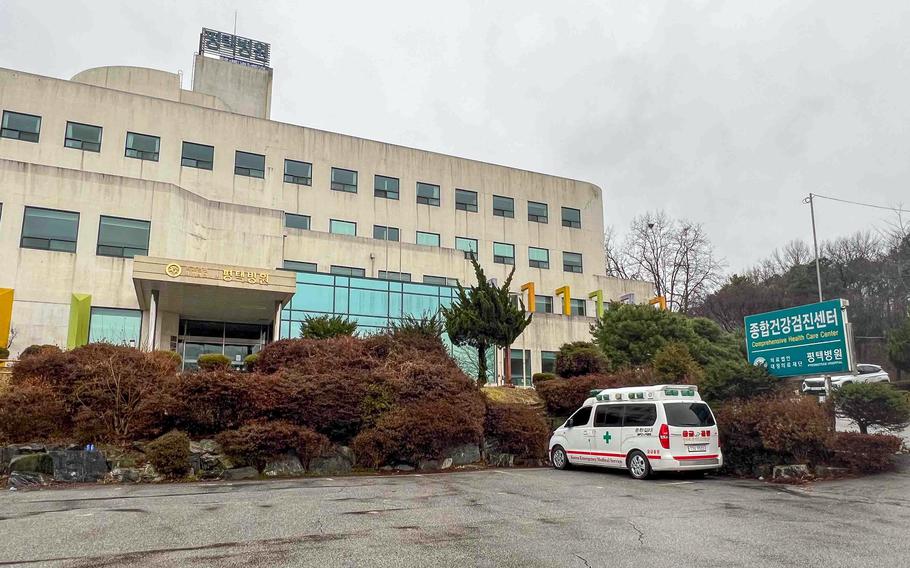
An ambulance waits outside a hospital in Pyeongtaek, South Korea, Feb. 20, 2024. (Christopher Green/Stars and Stripes)
CAMP HUMPHREYS, South Korea — Twelve South Korean military hospitals opened their doors to civilian patients with urgent medical needs Tuesday as thousands of interns and resident physicians in the country resigned in protest of a government proposal to increase medical school enrollments.
None of the listed hospitals are on U.S. military bases; however, the strike could affect U.S. civilians who are encouraged to seek off-base health care so that military doctors can prioritize active-duty troops and their families.
Armed Forces Daejon Hospital in Daejon city, roughly 80 miles south of Seoul, and the Navy Pohang Hospital in Pohang city, about 160 miles south of the capital, were among the facilities admitting emergency patients, according to a list provided by the Ministry of National Defense on Tuesday.
The process for admitting civilian patients into the military hospitals was streamlined and medical staff made “necessary preparations” to care for them, Defense Ministry spokesman Jeon Ha Gyu told reporters at a news briefing Tuesday.
The openings come as 6,415 resident physicians from 100 hospitals submitted resignations to protest the plan to increase enrollment quotas to accommodate 2,000 additional students starting next year.
Of those who resigned, 1,630 walked off the job, according to a Ministry of Health and Welfare news release Tuesday.
Interns and resident physicians argued they were not consulted about the proposal, which they say will reduce the quality of education and may prompt frivolous medical services, according to a report from the Korean Medical Association on Monday.
Park Min-soo, second vice minister of health and welfare, said Tuesday he had “serious concern and deep regret” for the disruptions in medical treatment.
“The government will do its best to operate an emergency treatment response system to minimize damage to patients,” Park told reporters at a briefing. “It can never be justified to leave the patient’s side to oppose a policy …”
South Korean medical schools in the 1980s had more students enrolled than they have now, and the country is in urgent need of more doctors, Park said.
He said 25 surgeries had been canceled in the country due to the lack of medical staff as of Monday.